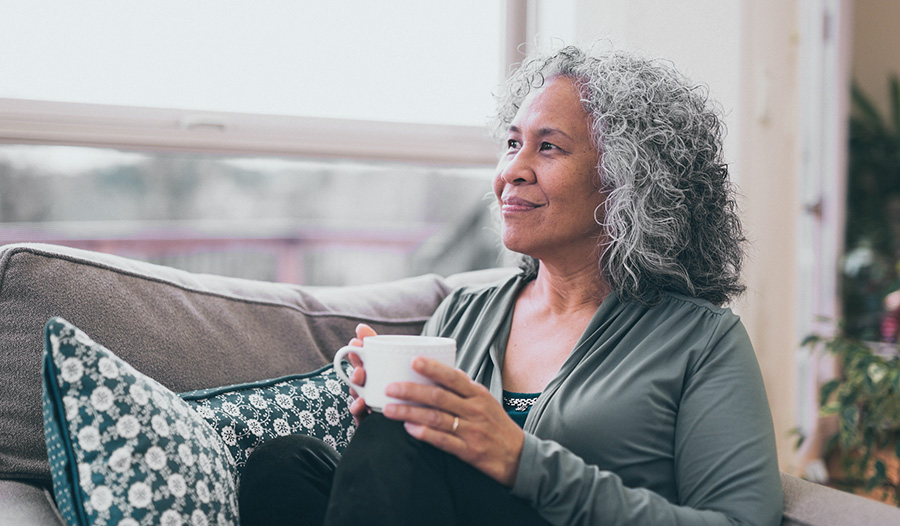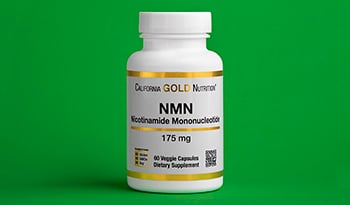Девять естественных подходов к устранению тревоги

Тревожным расстройством страдают миллионы людей по всему миру. Тревожность может иметь разные формы, симптомы и степень тяжести. Нередко бывает так, что пациенты обращаются в отделение неотложной помощи с жалобами на боль в груди, головные боли, боль в животе или даже учащенное сердцебиение и вдруг узнают, что страдают симптомами тревожного расстройства.
Тревога может вызывать чувство страха, чрезмерного беспокойства и нервозности – обычно достаточно сильное, чтобы помешать повседневной деятельности человека. Распространенные симптомы могут проявляться в различных частях тела, от сердца и мышц до кишечного тракта и других систем организма. Если вам кажется, что ваши симптомы связаны с тревогой, нужно обязательно показаться врачу, чтобы убедиться, что ваше состояние не обусловлено более серьезной медицинской проблемой.
Чтобы справиться с хронической тревожностью или острым приступом тревоги, многие начинают принимать выписанные врачом лекарства. Несмотря на относительную эффективность, рецептурные препараты не всегда помогают и должны использоваться с особой осторожностью и только под постоянным наблюдением врача.
Лекарства, используемые для лечения тревоги
Существует два основных класса рецептурных лекарств от тревоги.
К первой группе относятся бензодиазепины, например, Алпразолам (Ксанакс), Лоразепам (Ативан) и Диазепам (Валиум). Согласно исследованию 2014 года, опубликованному в British Medical Journal, эти лекарства, обычно используемые по мере необходимости, связывают с повышенным риском развития деменции. Другие распространенные реакции на прием лекарственных препаратов этого класса включают развитие зависимости, утомляемость, дезориентацию, депрессию, головокружение и амнезию. Несмотря на риски, без этих лекарств порой бывает не обойтись.
Второй класс препаратов – селективные ингибиторы обратного захвата серотонина (или СИОЗС). Эти лекарства включают Сертралин (Золофт), Циталопрам (Целекса), Флуоксетин (Прозак), Эсциталопрам (Лексапро) и другие. Несмотря на то, что эти лекарства эффективны и многим помогли изменить жизнь, у некоторых людей они могут вызывать побочные эффекты: усталость, возбуждение, головокружение и снижение либидо. Среди редких и серьезных побочных эффектов – серотониновый синдром и повышенный суицидальный риск.
Многие люди с тревожным расстройством предпочитают вообще избегать этих лекарств и ищут более натуральную альтернативу. Тем не менее, если вы принимаете лекарство по рецепту, прежде чем прекратить прием, нужно посоветоваться с врачом, потому что могут возникнуть симптомы отмены.
Перечислю некоторые натуральные альтернативы лекарствам. Возможно, это кому-то будет полезно.
Воронец кистевидный
Воронец кистевидный впервые обнаружили и начали использовать коренные американцы более 300 лет назад. Воронец кистевидный относится к семейству лютиковых. Это высокое цветущее растение произрастает в густых затененных лесах. Сегодня воронец кистевидный получил широкое распространение в Соединенных Штатах и Европе. Его в качестве лекарственного растения употребляют женщины, предпочитающие более натуральный подход к лечению распространенных женских недугов, таких как приливы и тревожность.
Как показали исследования, воронец кистевидный способен уменьшить симптомы тревожности у женщин. Исследование, проведенное в 2007 году, показало, что воронец кистевидный особенно помогает людям с тревогой и депрессией. Исследование 2011 года с участием женщин, лечивших рак молочной железы препаратом тамоксифен, показало, что воронец кистевидный может способствовать уменьшению симптомов тревоги, которые часто встречаются у тех, кто проходит интенсивную терапию. Авторы исследования 2018 года также высказались в пользу его использования для купирования симптомов тревоги. Рекомендованная доза: Как указано на этикетке.
Мелисса
Мелисса – популярное растение, которым пользуются миллионы людей. Ученые называют его "мелиссой лекарственной" (слово “мелисса” происходит от греческого слова, означающего "медоносная пчела"), но есть у этого растения и другие названия: лимонная мята, мяточник, лимонная трава, медовка, роевик, пчельник.
Мелисса лекарственная относится к семейству яснотковых. Родина мелиссы – Европа. Ярко-зеленое растение имеет небольшие, сердцевидные листья с гроздьями белых и желтых цветов, по форме напоминающих листья мяты.
Мелисса считается успокаивающим лекарственным растением и используется в лечебных целях уже более 500 лет.
В ходе ряда исследований было доказано, что мелисса может уменьшать симптомы тревоги. Считается, что мелисса помогает увеличить выработку в мозге химического вещества под названием ГАМК (гамма-аминомасляная кислота). Выработка этого вещества играет важную роль в лечении тревоги и фактически стимулируется некоторыми лекарствами, отпускаемыми по рецепту. В исследовании 2017 года, опубликованном в Phytotherapy Research, было проанализировано влияние мелиссы лекарственной на выработку ГАМК. Авторы пришли к выводу, что растение может помочь купировать тревогу.
В статье, опубликованной в 2016 году, также были внимательно изучены соединения, входящие в состав мелиссы лекарственной, и сделан вывод о том, что мелисса содержит ГАМК-стимулирующие рецепторы. По данным другого исследования, присутствие розмариновой кислоты в мелиссе лекарственной способствует уменьшению симптомов тревоги
В целом, исследования показывают, что мелисса лекарственная может использоваться в качестве безопасного и эффективного средства для лечения тревоги. Не сочетайте масло мелиссы с лекарствами от тревожности без предварительной консультации с врачом.
Жирные кислоты Омега-3
Жирные кислоты Омега-3 также известны как ПНЖК или полиненасыщенные жирные кислоты. Они важны для здоровья человека и обладают множеством полезных свойств, особенно применительно к работе сердца и головного мозга.
Исследование 2011 года с участием студентов-медиков показало, что жирные кислоты Омега-3 могут способствовать снижению тревожных симптомов. Шестьдесят восемь студентов разделили на две группы. Половина испытуемых получала жирные кислоты Омега-3, а другая половина принимала плацебо. У тех, кто принимал жирные кислоты Омега-3, уровень тревоги был на 20% меньше по сравнению с теми, кто жирные кислоты не принимал. Существенных побочных эффектов не наблюдалось.
По данным опубликованного в JAMA мета-анализа 2018 года, в котором приняли участие 2240 испытуемых из 11 стран, сделан вывод о том, что жирные кислоты Омега-3 могут помочь уменьшить симптомы клинического тревожного расстройства. Другие исследователи сообщили об аналогичных выводах. Рекомендованная доза: 1000-4000 мг в день.
Пробиотики
Пробиотики – это полезные бактерии, которые поступают с пищей и помогают поддерживать здоровую микрофлору кишечника. Пробиотики могут оказать неоценимую помощь при вздутии живота, синдроме раздраженного кишечника или воспалении толстой кишки. Пробиотики будут полезны и тем, кто принимает препараты, снижающие кислотность, или недавно пропил курс антибиотиков, поскольку эти лекарства могут нарушать нормальную среду пищеварительного тракта.
В ходе исследования 2019 года велось наблюдение за двумя группами людей: тех, кто принимал рецептурный препарат от тревоги и пробиотик, сравнивали с теми, кто принимал только рецептурный препарат от тревоги и плацебо. У принимавших пробиотик было отмечено меньше тревожных симптомов по сравнению с другой группой. Другое исследование 2019 года показало, что добавки с пробиотиками имеют аналогичную эффективность при купировании симптомов тревоги. Множество исследований показало, что здоровый кишечник очень важен для общего благополучия человека.
Мака перуанская (лат. Lepidium Meyenii)
Мака перуанская – это растение-адаптоген, которое культивируется в Южноамериканских Андах. Мака растет на высоте от 13 000 до 16 000 футов (4-5 км) над уровнем моря. Инки использовали маку на протяжении сотен лет и считали, что она обладает множеством целебных свойств. Инки применяли маку главным образом для повышения либидо и фертильности. Вместе с тем современная медицина обнаружила, что мака перуанская также может быть полезна и для людей, страдающих тревожным расстройством и депрессией.
По данным исследования, опубликованного в Menopause в 2008 году, у женщин, принимавших 3,5 грамма (3500 мг) маки перуанской в день, наблюдалось снижение тревожных и депрессивных симптомов по сравнению с женщинами, принимавшими таблетки плацебо. В исследовании 2015 года также сообщается о пользе маки в терапии тревожности. Рекомендованная доза: Как указано на этикетке.
Родиола розовая
Родиола – адаптоген, вероятно, обладающий массой полезных свойств. Древние целители использовали родиолу на протяжении тысячелетий. Родиола, как и другие адаптогены, является растением, помогающим защитить клетки и ткани от окислительного стресса и бытовых повреждений. Поскольку адаптогены растут в сложных климатических и экстремальных погодных условиях, они учатся защищать себя, передавая свои свойства тем, кто их потребляет.
Исследование 2012 года показало, что при приеме в качестве добавки родиола может помочь снизить уровень стресса. По данным исследования, опубликованного в Phytomedicine в 2016 году, родиола может быть эффективным средством лечения депрессии. В ходе проведенного в 2015 году исследования под руководством доктора Марка Кропли был сделан вывод о том, что среди употребляющих родиолу "...на 14-й день отмечено значительное снижение субъективно ощущаемой тревоги, стресса, гнева, растерянности и депрессии и значительное улучшение настроения в целом”.
Наконец, исследование 2018 года, опубликованное в Gut Pathology, показало, что родиола оказывает благотворное влияние на микробиом кишечника, что, вероятно, объясняет ее эффективность в борьбе с симптомами тревоги.
Корень валерианы
Корень валерианы – издревле известное лекарственное растение, помогающее облегчить симптомы тревоги. Исследование 2012 года показало, что корень валерианы может помочь контролировать тревожность. Исследование 2019 года также показало полезность корня валерианы при купировании симптомов тревоги. Рекомендованная доза: Как указано на этикетке.
Тревожность и эфирные масла
Со времен зарождения человеческой цивилизации люди осознавали пользу эфирных масел для лечения многих болезней. Древние египтяне использовали эфирные масла во время церемониальных торжеств и при бальзамировании мумий.
Такие масла высоко ценились: их часто применяли в качестве ароматизаторов, дарили и даже использовали вместо денег как своего рода валюту. За долгие годы многие убедились, что некоторые эфирные масла, в том числе масло ромашки, масло грейпфрута и лавандовое масло, эффективно уменьшают симптомы тревожного расстройства. Эти масла можно наносить на кожу или наливать в диффузор.
Тревожность и чай
При тревожном состоянии бывает полезно выпить чашку горячего чая . Шесть лучших чаев, помогающих при беспокойстве, включают: чай с ромашкой, лавандой, кава-кава, мятой перечной, женьшенем и мелиссой лекарственной.
Источники:
- Menopause. 2007 May-Jun;14(3 Pt 1):541-9.
- Catherine Ulbricht, Regina C. Windsor. (2015) An Evidence-Based Systematic Review of Black cohosh (Cimicifuga racemosa, Actaea racemosa) by the Natural Standard Research Collaboration. Journal of Dietary Supplements 12:3, pages 265-358.
- Phytotherapy Research. 2018 Feb 21. doi: 10.1002/ptr.6033.
- Kiecolt-Glaser JK, Belury MA, Andridge R, Malarkey WB, Glaser R. Omega-3 supplementation lowers inflammation and anxiety in medical students: a randomized controlled trial. Brain Behav Immun. 2011;25(8):1725–1734. doi:10.1016/j.bbi.2011.07.229
- Su KP, Tseng PT, Lin PY, et al. Association of Use of Omega-3 Polyunsaturated Fatty Acids With Changes in Severity of Anxiety Symptoms: A Systematic Review and Meta-analysis. JAMA Netw Open. 2018;1(5):e182327. Published 2018 Sep 14. doi:10.1001/jamanetworkopen.2018.2327
- Nutr Neurosci. 2019 Sep 13:1-7. doi: 10.1080/1028415X.2019.1598669.
- Iran J Basic Med Sci. 2019 May;22(5):506-514. doi: 10.22038/ijbms.2019.33956.8078.
- Brooks N. A., Wilcox G., Walker K. Z., Ashton J. F., Cox M. B., Stojanovska L. Beneficial effects of Lepidium meyenii (Maca) on psychological symptoms and measures of sexual dysfunction in postmenopausal women are not related to estrogen or androgen content. Menopause. 2008;15(6):1157–1162.
- Climacteric. 2015 Feb;18(1):69-78. doi: 10.3109/13697137.2014.929649. Epub 2014 Aug 7.(Maca and anxiety)
- Phytother Res. 2012 Aug;26(8):1220-5. doi: 10.1002/ptr.3712. Epub 2012 Jan 6.
- Phytomedicine. 2016 Jun 15;23(7):770-83. doi: 10.1016/j.phymed.2016.02.009. Epub 2016 Feb 24.
- Phytother Res. 2015 Dec;29(12):1934-9. doi: 10.1002/ptr.5486. Epub 2015 Oct 27.
- Gut Pathog. 2018 Mar 20;10:12. doi: 10.1186/s13099-018-0239-8. eCollection 2018.
- BMC Complement Altern Med. 2012 Nov 21;12:223. doi: 10.1186/1472-6882-12-223.
- Phytother Res. 2019 Apr;33(4):939-948. doi: 10.1002/ptr.6286. Epub 2019 Jan 10.
ОТКАЗ ОТ ОТВЕТСТВЕННОСТИ:Информация, содержащаяся в Центре здоровья, не предназначена для постановки диагноза...
















































































 Содержание
Содержание















